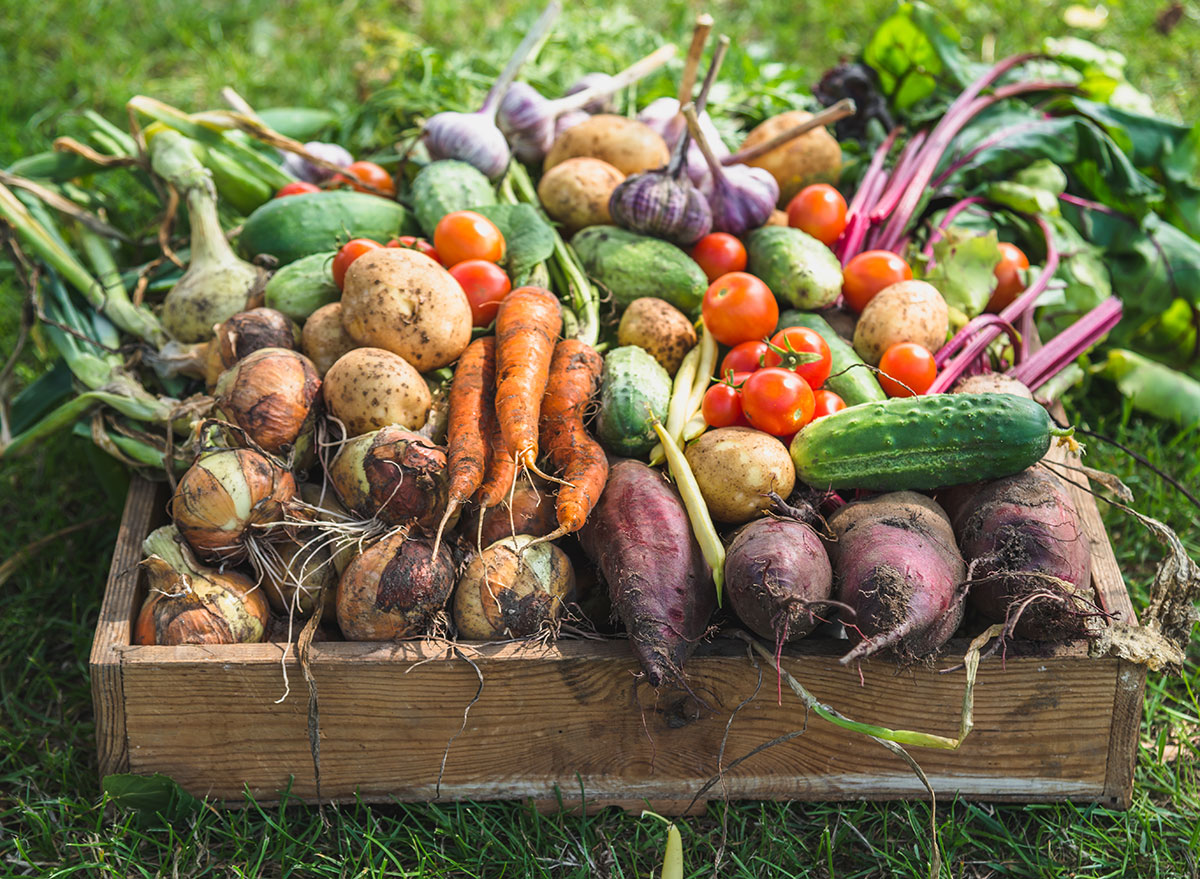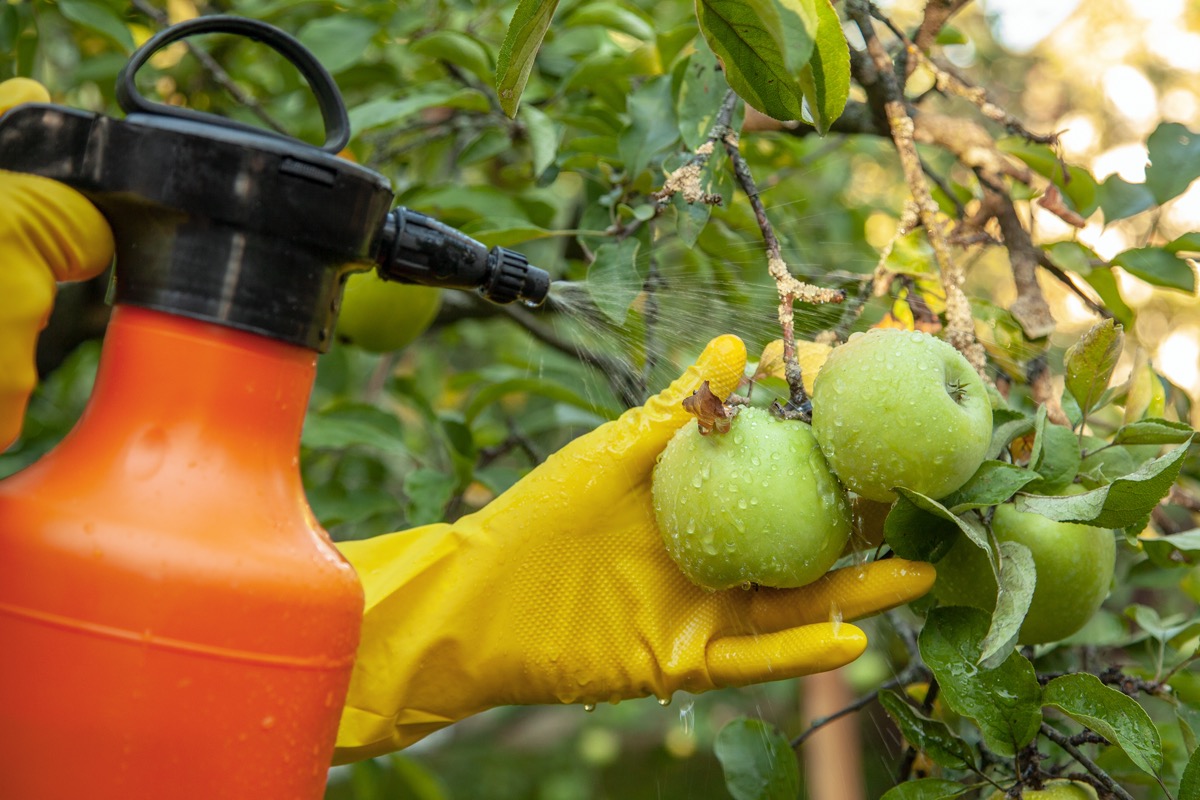Surprising Effects of Eating Organic Produce, Says Science

The research is mixed on whether or not organic produce is that much better for your overall health than conventionally grown fruits and veggies. However, a new peer-reviewed study from the Environmental Working Group (EWG), which analyzed 80,000 foods, found that organic processed products contain significantly fewer ingredients associated with negative health effects than non-organic processed foods.
In light of this new study, we compiled a list of four positive effects that may be associated with organic produce, based on existing research. Then, be sure to read our list of the 15 Cleanest Foods on Grocery Store Shelves, According to an Expert.
You may be exposed to fewer pesticides.

Each year, the EWG releases its Shopper's Guide to Pesticides in Produce, featuring the Dirty Dozen—a list of conventionally-grown fruits and vegetables that contains the most pesticides. These include nutrient-powerhouses such as apples, kale, and strawberries.
In a previous Eat This, Not That! article that covered the Dirty Dozen, Thomas Galligan, Ph.D., and EWG toxicologist explained that while the health benefits of eating fruits and vegetables, organic or not, are far greater than the risks associated with pesticide exposure, it's still a good idea to limit your intake of pesticide-containing foods as much as possible.
"It is also important to reduce your exposure to pesticides because pesticides have been linked to a variety of health harms, like cancer, hormone disruption, and damaging children's developing brains," he says. "Switching to organic produce is an effective way to reduce your pesticide exposure."
However, that's not to say organic foods are entirely pesticide-free, they just contain less. One 2014 paper that examined 343 peer-reviewed publications found that organic produce had four times less pesticide residue than conventional produce.
Organic produce might be richer in nutrients.

Organic produce may contain more nutrients than its conventional counterpart. One 2010 paper published in the journal Alternative Medicine Review stated, "reviews of multiple studies show that organic varieties do provide significantly greater levels of vitamin C, iron, magnesium, and phosphorus than non-organic varieties of the same foods."
While there is a growing body of evidence that would suggest organic foods provide more health benefits than conventional ones, the Mayo Clinic points out that the existing research largely remains inconclusive. Ultimately, it can't hurt to choose organic over conventional, if your paycheck allows.
Organic produce may taste fresher.

As far as taste goes, you may find that organic produce tastes a bit fresher and richer in flavor—especially if the organic farmer is local to your grocer. This is because organic produce often contains fewer preservatives than conventional produce does, which helps extend its shelf life in grocery stores. In other words, you're more likely to buy organic produce in its freshest state. Organic or not, always remember that the produce item will taste the freshest when it's in season.
Organic farming is more beneficial for the environment.

Organic farming tends to be better for the environment than conventional farming practices, as the lack of synthetic pesticides reduces pollution in both the soil and nearby waterways while increasing soil fertility and conserving water. Not to mention, organic farms use less energy than non-organic ones.
Bottom line: Ensuring you're eating plenty of fresh (and frozen!) fruits and vegetables is more important than whether you buy conventional or organic ones. Research shows that organic produce could reduce pesticide exposure, which may lead to better health outcomes. They also may be richer in nutrients and flavor, but that could also depend on whether or not you're buying in season and locally.








